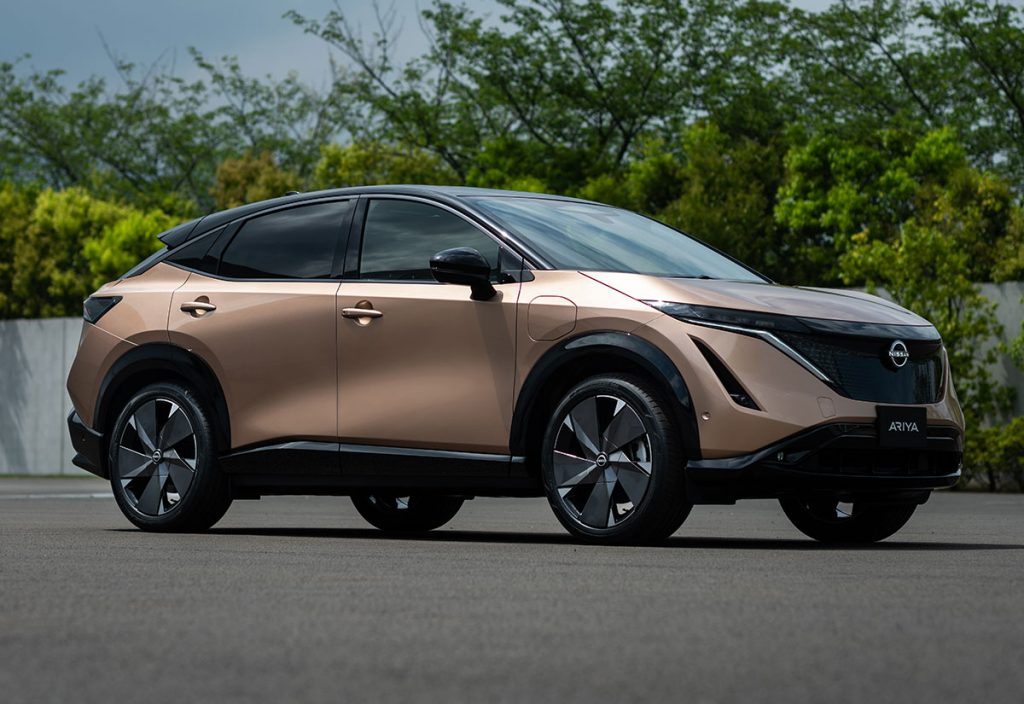Coronavirus has brought forth a growing awareness regarding corporate sustainability and global businesses’ role in climate preservation and as such the automotive industry is increasingly heading towards the electrification of vehicles.
The pandemic has also highlighted the fragility of global supply chains as multinationals had to adapt their manufacturing needs to ever-shifting situations, said Thierry Sabbagh, managing director, Nissan Middle East.
In a wide-reaching interview with Arabian Business, Sabbagh also outlined Nissan Middle East’s performance in 2021 and his expectation for the remainder of 2022, commenting on Nissan being the Official Automotive Partner for Expo 2020 Dubai.
How do you evaluate the automotive sector in the UAE in 2021 and what are your expectations for 2022?
Despite a slowdown in recent years, brought about by the Covid-19 pandemic and disruptions in global supply chains, 2021 saw the automotive industry adapt and move forward on several fronts.
Our business strategy yielded a 9.9 percent increase in sales across the Gulf during the first nine months of FY21, when compared to the same period last year. This was demonstrated by a 17.7 percent increase in the UAE, a 36.2 percent increase in Bahrain, and a 37.7 percent increase in Kuwait from April to December 2021. Combined sedan sales increased by nearly 62 percent as compared to the same period last year.
Through customer surveys, we’ve recorded a 17 percent increase in our Customer Happiness index across our digital platforms in FY21 compared to FY20. We continue to listen to our customers and cater our products and offerings to meet their evolving needs by working closely with our partners across the region which has led to a 40 percent increase in our leads to sales conversion within a single year.
What are the main challenges facing the sector (especially chip shortages and supply chain problems) and how did Nissan address them?
Businesses across a variety of industries have been navigating unprecedented challenges, especially in the past two years since the onset of the Covid-19 pandemic, which was augmented by supply chain disruptions and most recently a global shortage in semiconductors, all of which have had a cascading effect on the global automotive industry and the consumer technology industry amongst many others.
With experts predicting the end of the semiconductor shortage as global production ramps up, the near future remains uncertain, and with that, we at Nissan continue to adapt to unexpected changes, while keeping customers our top priority in doing so.

Over the past two years, we have adjusted production schedules within our manufacturing operations, and continue to work closely with our global teams and local partners to minimize the disruption of vehicle deliveries to our dealers and customers. Guided by the Nissan NEXT global transformation plan, we have also managed to maintain profitability and business continuity despite the challenges.
How would you describe your transition to the production of electric cars?
As the need for greater connectivity and technology in automobiles increases, we are dedicated to building cleaner and greener vehicles that are more connected than ever before.
As we place electrification and autonomous driving at the center of our long-term strategy, we harness innovations being made on a global scale and are proud to see this taking shape in the form of the Nissan Ariya, the brand’s first all-electric crossover that was showcased for the first time in the region at Expo 2020 Dubai. Serving as a symbol of what is to come, the Ariya is the epitome of Nissan Intelligent Mobility and demonstrates the brand’s direction and vision for the future of mobility.
As part of our Ambition 2030 plans, we plan to invest over 2 trillion yen ($17.6 billion) over the next five years and aim to launch 23 new electrified models, including 15 new EVs in key global markets by 2030. A few of our latest concepts include Nissan Chill-Out, a next-generation crossover EV that utilises the CMF-EV platform for high levels of comfort and driving excitement, as well the Nissan-Hangout, a utility vehicle that changes the perception of mobile space, all with the goal to democratize technology and accelerate the road to electrification through mass adoption.

How important is the UAE market to Nissan, and how would you describe your performance in it?
The UAE and the wider Middle East remains a key region of opportunity for Nissan, and our presence in the UAE dates back over fifty years. In 1994, Nissan was also the first Japanese carmaker to establish its regional headquarters in the UAE. Thanks to the deep-rooted heritage of Nissan in the region, and despite the challenges brought about by Covid-19, the last two years have seen us introduce new products to the market, increase sales, and elevate innovation in the products and services we offer customers across the region.
The UAE’s ambition continues to be met with its relentless dedication to future-readiness, demonstrated through its Net Zero 2050 Strategic Initiative announced ahead of the UN’s COP26 summit last year. This comes in parallel with Nissan’s 2050 carbon neutrality goals, becoming the first Japanese automaker to join the UN-backed Race to Zero campaign, with commitments to move beyond vehicle emissions to actively implementing innovative sustainability process along the entire supply chain, to reduce carbon footprint on a larger scale.








